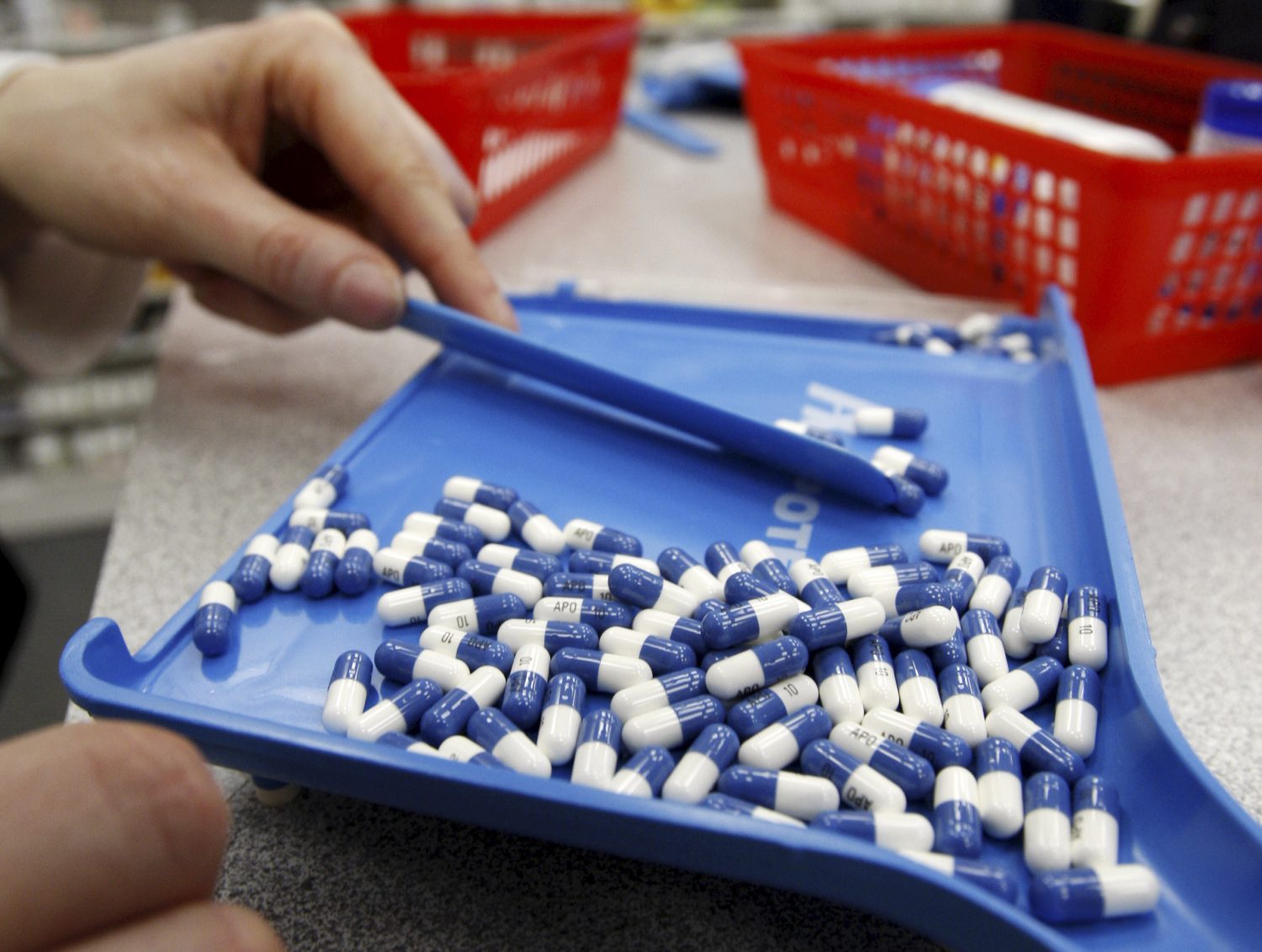
By Michael Erman
(Reuters) – The Trump administration took a first step on Wednesday toward allowing the importation of medicines from Canada, an action the president has advocated as a way to bring cheaper prescription drugs to Americans.
The U.S. Department of Health and Human Services said it and the Food and Drug Administration will propose a rule that will allow it to authorize states and other groups to pursue pilot projects related to importing drugs from Canada.
The agency also said that it would allow drugmakers to bring drugs that they sell more cheaply in foreign countries into the United States for sale here, potentially enabling them to sell below their contracted prices in the U.S.
Drug industry shares were lower slightly, with the NYSE Arca Pharmaceutical Index <.DRG> off 0.25 percent versus a broader flat market. Wall Street analysts said importation was far from being put into place and was limited to certain drugs from Canada.
Health and Human Services Secretary Alex Azar said he has had prior discussion with Canada about importation and that it would be up to the states, pharmacies and distributors to address any hurdles.
“There are hurdles of course, but the hurdles now are known. They are being laid out and they are surmountable,” he said during a call with reporters.
Canadian officials were not immediately available for comment. Reuters has previously reported that Canada opposes any U.S. plans to buy Canadian prescription drugs that might threaten the country’s drug supply or raise costs for its own citizens.
Many drug purchase agreements in Canada forbid the re-export of drugs to other countries, according to a Canadian government memo obtained by Reuters.
“Given the size of the U.S. market and of large states such as Florida, which alone is two-thirds of the population of Canada, reliance on imports from Canada would have limited viability as a long term solution to the high cost of drugs in the U.S.,” Health Canada said in a statement on July 17.
Evercore ISI analysts Ross Muken and Michael Newshel said in a research note that any implementation is still far away given the technical steps of rulemaking and that the proposals will face challenges. For instance, he said, most Republicans in Congress oppose importation.
The first part of the proposal would allow states, wholesalers or pharmacists to submit plans for pilot projects for Canadian drugs if their raw materials are manufactured in the same plant as the U.S. version and are in line with the FDA’s approval. It would exclude biologics, infused drugs, injected drugs, inhaled drugs for surgery and certain parenteral drugs.
The Trump Administration has experienced several recent failures in its efforts to bring down drug prices. Its plans to make drugmakers disclose prices in TV ads had to be thrown out after it lost a legal battle with drugmakers, and it abandoned efforts to force pharmacy benefit managers to pass discounts onto Medicare recipients.
Drug pricing is an important election issue for Trump and also for Democrats, many of whom have said they would support importing medicines to lower U.S. drug prices. Pharmaceutical companies have opposed importing medicine.
(Reporting by Manas Mishra in Bengaluru; Michael Erman and Caroline Humer in New York and Allison Martell in Toronto; Editing by Steve Orlofsky)



